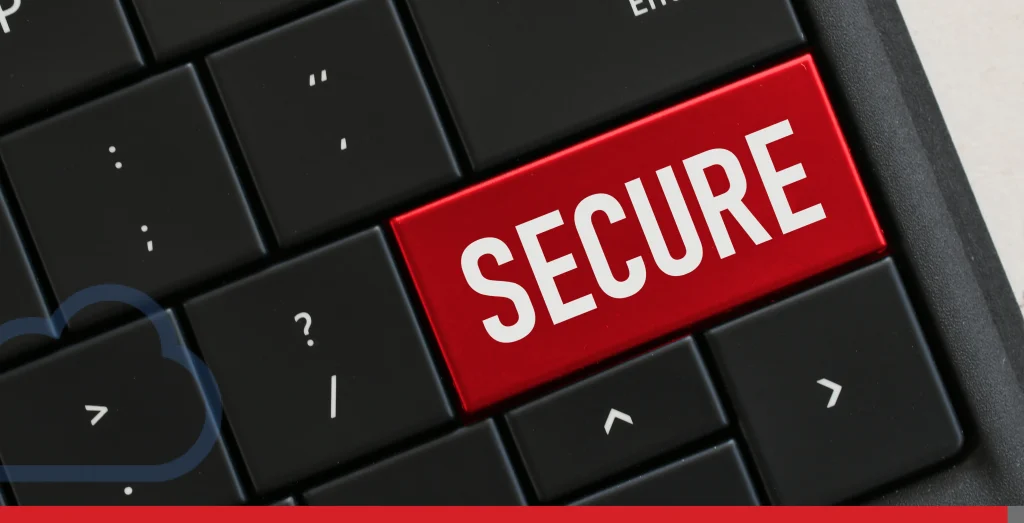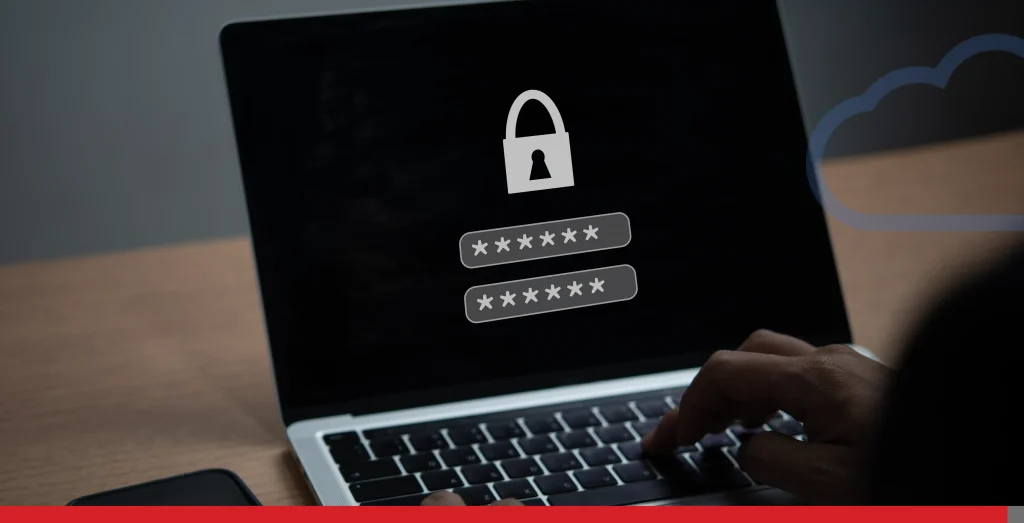Welcome to the digital age! If you own a website, or even just dream of launching one, you’ve likely encountered SSL certificates and HTTPS. Maybe you’ve noticed the padlock in your browser, or you’ve wondered why some addresses start with “HTTPS” instead of just “HTTP.”
In 2025, it’s a requirement to address website security certificates, especially here in Canada, where our privacy and digital safety rules are strict, so let us clarify the concept of SSL certificates and explore how they keep you, your visitors, and your business safe and sound!
- What are SSL Certificates?
- How SSL Certificates Work
- Types of SSL Certificates
- Obtaining an SSL Certificate
- Benefits of SSL Certificates for Websites
- SSL Certificate Management in 2025

What are SSL Certificates?
Simply stated, it’s like a digital equivalent of a passport: a digital ID that proves you’re valid and helps keep all online conversations private. SSL stands for Secure Sockets Layer, but these days, most certificates use the upgraded protocol called TLS (Transport Layer Security).
When you install an SSL certificate, you give your website the ability to encrypt all data that travels between your server and your visitors.
SSL certificates are issued by special organizations called Certificate Authorities (CA). These Certification Authorities (also known as certificate authorities) are responsible for issuing SSL certificates and establishing trust on the internet.
A certification authority is the trusted entity that issues and manages digital certificates, and is also responsible for renewing certificates and notifying website owners about SSL certificate expiration.
The certificate contains your public key (used for encryption), details about your website’s real owner, and the certificate authority’s digital signature, which verifies the authenticity of the certificate. This digital signature is used to confirm the legitimacy of the certificate and ensure it was issued by a trusted authority.
Whenever someone visits your website, their browser does a quick handshake with your server to set up a secure connection. When a browser attempts to access a secure website, it initiates the SSL Handshake process to establish a secure session. If everything checks out, you’ll see the padlock icon (a visual indicator of a secure site) and a “HTTPS” in the address bar.
“HTTPS” stands for Hypertext Transfer Protocol Secure, which signals that the site is protected by SSL/TLS. For extended validation (EV) certificates, you might even see a very green address bar with your company’s name front and centre.

How SSL Certificates Work
At the heart of an SSL certificate is some sophisticated cryptographic technology that happens in milliseconds. It works with a thing called Public Key Infrastructure (PKI). Everyone can see your public key, but only your server has the private key.
The handshake involves swapping public and private keys along with a session key, a symmetric encryption key generated during the SSL handshake, to ensure that anything sent or received can only be decrypted by the intended party.
The process works as follows:
- Browser requests a secure connection: Your visitor enters your site with “HTTPS.”
- SSL handshake takes place: Keys are exchanged silently in the background.
- Session keys are set: A session key is generated during the SSL handshake; it’s a symmetric encryption key unique per visit and encrypts all subsequent data to ensure a secure session.
- Encrypted conversation starts: No one snooping on the internet can figure out what your users are saying to your website.
The SSL protocol uses advanced encryption algorithms to create an encrypted link between the browser and the web server. The SSL certificate creates a secure session by establishing a private, encrypted channel for each online visit. And all this happens in milliseconds!
Types of SSL Certificates
Not all certificates offer the same benefits, so let’s break down the main types based on their validation level:
- Domain Validated (DV): The basic option. Great for blogs or small eCommerce stores, quick to get, and covers a single domain.
- Organization Validated (OV): For bigger businesses that want to prove they’re not just a stranger on the web.
- Extended Validation (EV): The benchmark for quality. An extended validation certificate requires a detailed verification process by the certificate authority, including strict identity checks, and displays your company name in green in the browser bar, a symbol of web trust.
- Wildcard SSL: Secures your main domain and all its subdomains (for example, shop.yourdomain.com, help.yourdomain.com).
- Multi-Domain SSL: A multi-domain certificate can secure multiple domains and sub-domains, even those with different TLDs, using SAN fields. This type of certificate is ideal for businesses managing multiple domains or brands, allowing you to lock up several domain names with one certificate.
Remember: Modern SSL certificates are technically TLS certificates, reflecting the evolution from SSL to TLS protocols for secure data transmission.
Extended Validation Certificates
Extended Validation (EV) certificates are the superheroes of the SSL world. Getting one isn’t instant; your Certificate Authority will make sure you are exactly who you say you are. They check company documents, verify your legal existence, and ask for proof that you control your domain.
When your site is protected with an EV certificate, visitors see a green address bar and your company’s legal name. That instantly elevates your credibility, which is great for eCommerce, finance, or any industry where trust means everything.
But is EV always necessary? If you run a Canadian non-profit blog, a DV certificate might suffice, but businesses processing payments or storing sensitive data should look into EV for maximum reassurance.

Obtaining an SSL Certificate
Getting an SSL certificate for your website is a straightforward process, but it’s important to follow each step carefully to guarantee a secure connection.
- First, the website owner generates a Certificate Signing Request (CSR) on the web server. This CSR contains information about your website and is submitted to a certificate authority for review.
- The certificate authority then verifies your details and checks that you truly own the domain. This is a crucial step to prove domain ownership and prevent fraud.
- Once the certificate authority is satisfied, they issue your SSL certificate, which you then can install on your web server.
- With the SSL certificate in place, your web server can establish secure connections with web browsers, ensuring that all data transferred is encrypted and protected from unauthorized access.
- The validation process may vary depending on the type of SSL certificate you choose, but the goal is always to safeguard your visitors and your website’s reputation.
- Now, it’s time to install it on your web server. Most platforms have one-click installation for SSLs now. But don’t worry, your web host most likely provides tools or support for installing SSL certificates, making the process easier for website owners!
SSL certificates work with all major browsers like Chrome and Firefox, so your visitors are covered no matter what device they’re using. But always double-check your installation, as misconfigured certificates can throw “Not Secure” warnings to visitors.
SSL Certificate Providers
There are well-known certificate authorities like Sectigo, DigiCert, and GlobalSign that are trusted by millions of internet users worldwide. When selecting an SSL certificate provider, consider the level of validation you need, the type of SSL certificate that fits your website, and the provider’s reputation for reliability and security.
A trusted certificate authority verifies the website owner’s identity before issuing an SSL certificate, helping to ensure that only legitimate sites are protected. This verification process is needed to prevent malicious sites from obtaining SSL certificates and misleading users.
If you want to know more about overall website security for your website, check out our guide: The Canadian Website Security Guide You’ll Need To Get Started!
SSL Certificate Cost
The price of an SSL certificate can vary widely, depending on the type of certificate, the level of validation, and the provider you choose. Domain Validated (DV) certificates are typically the most affordable option, offering basic security for informational websites and blogs.
On the other end of the spectrum, Extended Validation (EV) certificates come with a higher price tag due to their comprehensive validation process and the added trust they provide, like displaying your company name in the address bar.
SSL certificate costs can range from just a few dollars to several hundred dollars per year. When deciding which SSL certificate to purchase, consider the level of security your website needs and the potential impact of not having a secure connection.
Without SSL, visitors may see a warning message in their browser’s address bar, which can quickly erode trust and drive users away.
SSL Certificate Validation
SSL certificate validation is all about confirming that a website is owned and operated by a legitimate party.
There are several levels of validation:
- Domain Validation (DV) requires only proof of domain ownership, making it quick and easy for most website owners.
- Organization Validation (OV) and Extended Validation (EV) go further, requiring verification of the website owner’s identity and business credentials.
This extra scrutiny helps prevent unauthorized third parties from obtaining SSL certificates for domains they don’t own. For businesses managing multiple domain names, unified communications certificates and multi-domain certificates offer a convenient way to secure all your sites with a single SSL certificate.
No matter which type you choose, the validation process is a must-have in building trust with your visitors and ensuring your website’s security!

Benefits of SSL Certificates for Websites
Now, let’s consider the advantages. Imagine everything is all set up. What does this bring to your site? Well, here are the SSL certificate benefits for your site:
- Top-tier security: Protect passwords, payment data, and personal info from hackers. SSL certificates encrypt sensitive information such as credit card numbers, addresses, and login credentials during transactions.
- Secure online sessions: SSL certificates keep every online session secure, especially during transactions or data exchanges, by encrypting data between the user and your site.
- Safe submission of personal information: SSL certificates are essential when users submit personal information through forms or login panels, ensuring their data is protected.
- Trust and credibility: Users are more likely to do business with sites displaying the padlock and HTTPS in the URL address bar, signalling security to users. SSL certificates also authenticate your website’s identity, reassuring visitors that your site is legitimate.
- Boosted SEO rankings: Google and other search engines favour sites secured with SSL, so this improves your search engine ranking.
- Higher conversion rates: Studies show people abandon the site the moment they see a “Not Secure” alert. SSL = more potential sales.
- Prevent warning messages: Don’t let browser warnings ruin your site’s rep.
- Secure your web address: An SSL certificate is required to secure your web address with HTTPS, ensuring encrypted communication and trustworthiness.
- Stay up to date: Keep your SSL certificate up to date to maintain trust and security for your users.
SSL Certificate Management in 2025
Now, let’s analyze what has been happening lately around certificates. As of 2025, SSL certificates don’t last as long as they used to. The max certificate lifespan is shrinking:
According to Sectigo, by 2029, certificates will need to be renewed about every 47 days, which is a move designed to tighten security and reduce risk. Each SSL certificate has an expiration date, after which it must be renewed to maintain security and prevent vulnerabilities.
Manual management is a recipe for trouble; automated tools are now a must for businesses to avoid outages or missed renewals.
Trust your hosting provider (like EasyHosting!) to help monitor, renew, and configure your certificates so you never get caught with an expired or misconfigured security certificate.

Final Thoughts
SSL certificates are a must-have for every website.
Consider that security and configurations are always changing, so, keep ahead of the continuous improvements SSL certificates have. Remember, while we say “SSL certificate,” you’re actually getting TLS security. TLS is the modern, more robust protocol that offers stronger encryption and better performance. The name “SSL” has simply stuck around for simplicity. These types of changes persist, but so does the security we must always adhere to on our websites.
Feeling like you need to make your website more trustworthy, compliant, and future-proof? SSL certificates are your secret weapon, don’t delay; get protected today, and let EasyHosting show you how easy web security can be!
Check out EasyHosting’s SSL Certificates service and explore the plans that can help your website get more trustworthy around your audience.
Call us: 1-888-390-1210
Want more tips? Check out the EasyHosting blog for the latest trends, strategies, and insider secrets to grow your online business!
FREQUENTLY ASKED QUESTIONS
What is an SSL certificate?
It’s a digital file that proves your website’s identity and enables encrypted communication (HTTPS) between your server and visitors.
Why do Canadian websites need HTTPS in 2025?
For privacy, trust, regulatory compliance, and SEO rankings. Security standards have gone up everywhere, especially in Canada, where laws protect user data!
How do I get an SSL certificate for my Canadian website?
Choose a trusted provider (like EasyHosting), generate a CSR, submit it for authentication, and install it using your hosting dashboard.
How often do I have to renew my SSL certificate?
Due to new rules, certificate validity will keep shrinking until every 47 days by 2029, so you’ll want automated renewal tools.
Does Google rank HTTPS sites higher?
Absolutely! Google rewards secure sites with better rankings, boosting your online exposure.whc
What’s the difference between SSL and TLS?
TLS is the newer, stronger protocol; SSL is deprecated. The term “SSL certificate” sticks around for simplicity.
What happens if my SSL certificate expires or is misconfigured?
Your visitors will get “Not Secure” warnings. This hurts your site’s reputation, erodes trust, and can impact sales.



